Alston's Mouse: Songs for all occasions. A small rodent has dedicated an entire section of its brain to singing, but why does a mouse need to sing all the time? (6 photos)
A song is not just a set of sounds in a certain rhythm. It carries special meanings and emotions. Not only people and birds know this, but also Alston’s short-tailed mice - funny rodents from Central America and favorites of neuroscientists. 
Their whole life revolves around singing. Males, females, children and old people sing a lot and for different reasons. Singing is such an important part of their lives that animals have allocated a separate area of the cerebral cortex for it. But with a weight of 10-12 grams, any piece of gray matter should be used as efficiently as possible! 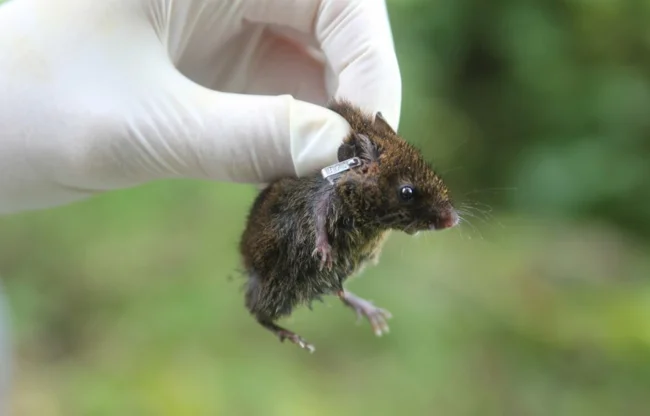
The mouse is 3 times lighter than our vole and is closer to hamsters than to real mice.
Little mice use more than a hundred vocalizations: from short squeaks to long trills. Each song consists of several sets of sounds and likely carries a unique message. Neuroscientists are not yet sure of the latter; they have only just begun to comprehend the secrets of mouse songs. Scientists were able to identify the most primitive meanings - limiting territory, warning of danger and, of course, attracting ladies. 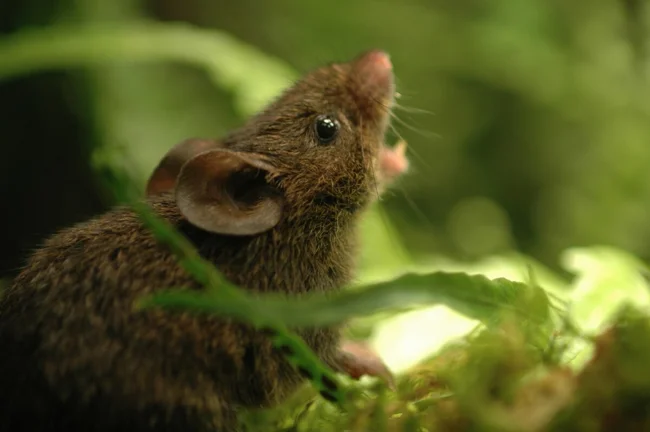
The rodent approaches singing thoroughly: it stands on its hind legs, stretches its neck and waits for the right moment. It is extremely important to him that everyone around him hears the message. The animal waits for a gap in the singing of other mice and begins to squeak intensely. The sound range of the short-tailed mouse is at the very limit of audibility of the human ear and sometimes jumps into ultrasound. Most local predators do not hear such high frequencies, so the rodent does not unmask itself. 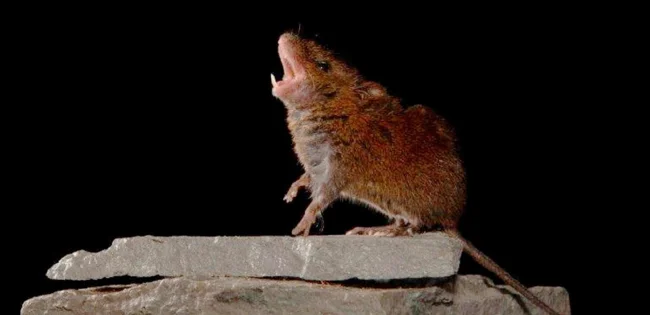
Gives neighbors the latest news.
After a good shout, the kid runs about his business. A small mouse has a high metabolic rate, so the animal needs a lot of protein food - insects and other invertebrates. However, she does not refuse grain and fruit. The short-tailed mouse spends most of the day searching for tasty treats in the leaf litter of high-altitude tropical forests. Well, at night she dozes in a secluded corner of the forest. 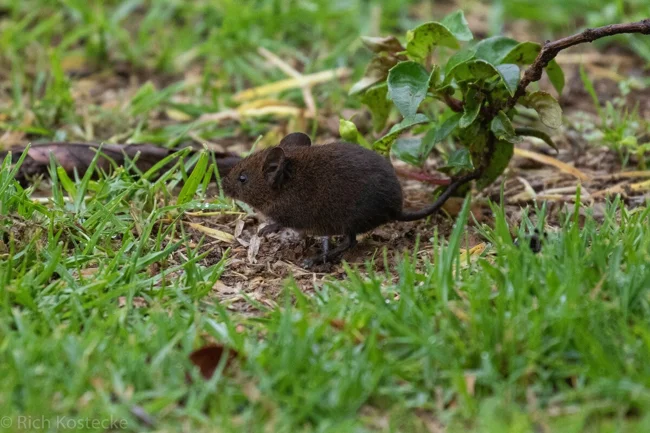
He's in a hurry to eat spiders!
This metabolism also has its advantages: singing mice reproduce faster than rabbits: up to 5 litters per year! A hormone-stunned male attracts the attention of all the girls in the area with the help of his melodies. If the lady is interested, they will have a short but very stormy date. Its result is a month of pregnancy and from 1 to 9 cubs. Mom raises the little things herself and is forced to get food overtime. Fortunately, not for long; after a month they become completely independent. 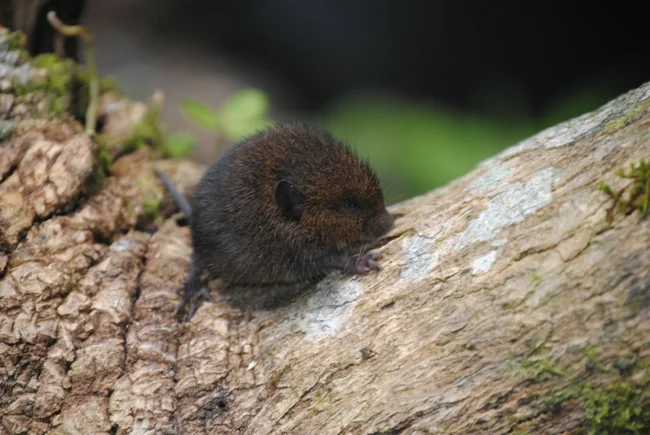
If the musical mouse is lucky, it will live 8 years!
My rating for Alston's short-tailed mice is 9 squeaky songs out of 10. I envy those who can sing with white envy, regardless of their species origin. But these rodents fascinate me especially, because their life is a real musical!
